Table of Contents
Toggle
Investing in real estate in Ghana offers a plethora of opportunities for both local and foreign investors. The Ghanaian property market has experienced significant growth in recent years, making it an attractive destination for individuals looking to maximize their returns. In this section, we will explore why investing in Ghana properties is a wise choice and provide an overview of the real estate market in Ghana.
Investing in Ghana properties offers several compelling advantages. Firstly, Ghana has a stable political environment and a growing economy, making it an attractive destination for investment. The government has implemented various policies and initiatives to promote foreign investment in the real estate sector, further enhancing the investment climate.
Secondly, Ghana has a growing middle class and an increasing urban population. This has led to a rising demand for housing and commercial properties, creating a favorable market for real estate investors. Additionally, the country’s natural resources, tourism potential, and infrastructure development projects contribute to the overall attractiveness of the real estate market.
Lastly, Ghana offers relatively affordable property prices compared to other African countries, providing investors with the opportunity to enter the market at a lower cost. This affordability, coupled with the potential for high rental yields and property value appreciation, makes investing in Ghana properties an enticing prospect.
The real estate market in Ghana is characterized by a diverse range of investment opportunities. The market encompasses residential, commercial, and industrial properties, catering to various investor preferences. Residential properties, including apartments, townhouses, and detached houses, are in high demand due to population growth and urbanization.
Commercial properties, such as office spaces, retail outlets, and warehouses, are also sought after, particularly in major cities like Accra and Kumasi. The tourism sector in Ghana has experienced significant growth, leading to increased demand for hospitality and luxury real estate. This sector presents lucrative investment opportunities for those looking to capitalize on the country’s thriving tourism industry.
In recent years, the Ghanaian government has taken steps to streamline the real estate sector and improve transparency. These efforts include the implementation of regulations and licensing requirements for real estate agents and developers. It is advisable for investors to work with licensed real estate agents in Ghana and trusted real estate developers in Ghana to navigate the market effectively.
To make informed investment decisions, conducting thorough market analysis is crucial. This involves examining factors such as property prices, rental yields, supply and demand dynamics, and market trends. By understanding the intricacies of the Ghanaian property market, investors can identify profitable opportunities and maximize their returns.
In the following sections, we will delve deeper into the legal considerations for foreign investors, profitable investment opportunities, due diligence, financing options, and essential tips for successful real estate investment in Ghana. Stay tuned to learn more about the intricacies of investing in Ghana properties and how to make the most of your investment.

Before diving into the exciting world of real estate investment in Ghana, it’s essential for foreign investors to familiarize themselves with the legal considerations involved. Understanding property ownership laws and tax implications is crucial for a smooth and successful investment experience.
Foreign investors should be aware of the property ownership laws in Ghana to ensure compliance and protect their investment. In Ghana, there are various forms of land tenure, including leasehold and freehold. Leasehold grants the investor the right to use the land for a specified period, while freehold grants full ownership of the land.
It is important to work with a reliable lawyer or legal professional who is well-versed in Ghanaian real estate laws and can guide you through the process. They can help you navigate the intricacies of property ownership, conduct thorough due diligence, and ensure that all necessary legal requirements are met. For more information on buying property in Ghana, refer to our article on buying property in Ghana.
foreign investors in Ghana‘s real estate market should also be mindful of the tax implications associated with their investment. The tax system in Ghana is governed by the Ghana Revenue Authority (GRA) and includes various taxes such as property tax, capital gains tax, and rental income tax.
Property tax is levied annually and is based on the assessed value of the property. Capital gains tax is applicable when selling a property and is calculated based on the profit made from the sale. Rental income tax is applicable to rental properties and is calculated based on the rental income generated.
To ensure compliance with tax regulations, it is advisable to consult with a tax professional or accountant who specializes in Ghanaian tax laws. They can provide guidance on tax obligations, exemptions, and any other tax-related matters. For more information on tax regulations, refer to our article on Ghana property investment regulations.
By understanding the property ownership laws and tax implications, foreign investors can make informed decisions and navigate the legal landscape of real estate investment in Ghana. Working with experienced professionals who have expertise in Ghanaian real estate laws and taxation can help ensure a smooth and successful investment journey.
When it comes to investing in Ghana properties, it’s crucial to identify the right opportunities that offer the potential for attractive returns. This section will discuss two key aspects to consider when seeking profitable investment opportunities in Ghana: emerging real estate hotspots and types of properties for investment.

Ghana’s real estate market offers several emerging hotspots that present great potential for investment. These areas are experiencing rapid growth and development, making them attractive options for investors. Some of the emerging real estate hotspots in Ghana include:
| Hotspot | Description |
|---|---|
| Accra | As Ghana’s capital and largest city, Accra offers a range of investment opportunities, particularly in luxury real estate and commercial properties. The city’s growing economy and infrastructure development make it an appealing destination for both local and foreign investors. |
| Kumasi | Located in the Ashanti Region, Kumasi is Ghana’s second-largest city and a major commercial hub. The city’s expanding middle class and improving infrastructure make it a promising market for residential and commercial real estate investments. |
| Takoradi | Situated in the Western Region, Takoradi is experiencing significant growth due to the oil and gas industry. The demand for housing and commercial spaces in this area is on the rise, making it an attractive investment opportunity. |
| Tema | Known for its industrial activities and port, Tema offers investment opportunities in both residential and commercial real estate. The city’s strategic location and ongoing infrastructure projects contribute to its growth potential. |
It’s important to conduct thorough market analysis and research to understand the specific dynamics and investment potential of each emerging hotspot. For more information on the Ghana real estate market, refer to our article on Ghana real estate market.
Investors in Ghana have a variety of property types to choose from based on their investment goals and risk appetite. Some common property types for investment in Ghana include:
| Property Type | Description |
|---|---|
| Residential Properties | Residential properties, such as apartments, townhouses, and single-family homes, are popular investment options in Ghana. These properties can generate rental income and offer potential capital appreciation over time. |
| Commercial Properties | Commercial properties, including office buildings, retail spaces, and warehouses, can provide stable rental income and potential long-term appreciation. The demand for modern commercial spaces is growing in Ghana, driven by the country’s economic development. |
| Mixed-Use Developments | Mixed-use developments, which combine residential and commercial spaces in one project, are gaining popularity in Ghana. These developments offer a diverse range of investment opportunities, catering to different market segments and maximizing returns. |
| Land | Investing in undeveloped land can be a lucrative long-term investment strategy. Land prices in certain areas of Ghana have shown significant appreciation over time, making it an attractive option for investors seeking capital gains. |
It’s important to evaluate the potential returns, risks, and market demand associated with each property type before making an investment decision. Conducting thorough due diligence and market analysis will help you assess the viability of different property types. For more information on buying property in Ghana, refer to our article on buying property in Ghana.
By identifying emerging real estate hotspots and understanding the types of properties available for investment, you can make informed decisions and maximize your returns when investing in Ghana properties. Remember to work with experienced local real estate professionals, such as real estate agents and real estate developers, who can provide valuable insights and guidance throughout the investment process.

Before making any real estate investment in Ghana, it is essential to conduct thorough due diligence and research. This ensures that you make informed decisions and maximize your returns. Two key aspects of this process are conducting market analysis and evaluating the return on investment (ROI).
Conducting a comprehensive market analysis is crucial to understanding the current dynamics of the Ghanaian real estate market. This analysis involves studying various factors that can influence property prices and demand. Some key aspects to consider during market analysis include:
By conducting a comprehensive market analysis, you can gain valuable insights into the Ghanaian real estate market, identify emerging opportunities, and make informed investment decisions.
Evaluating the return on investment (ROI) is a critical step in assessing the profitability of a potential real estate investment in Ghana. This analysis helps you understand how much income you can expect to generate from the property compared to the initial investment. When evaluating ROI, consider the following factors:
By evaluating the ROI, you can determine the potential profitability of the investment and compare it with other opportunities in the market. It is advisable to consult with local experts, such as real estate agents and real estate developers, who have in-depth knowledge of the Ghanaian property market and can provide valuable insights.
By conducting thorough market analysis and evaluating the return on investment, you can make informed decisions and maximize your returns when investing in properties in Ghana. Remember to comply with the property ownership laws and consider the legal and tax implications for foreign investors to ensure a smooth and successful investment journey.

When it comes to investing in Ghana properties, financing your investment is a crucial aspect to consider. As a foreign investor, you have various options to explore, including mortgage loans and alternative financing solutions.
Obtaining a mortgage as a foreign investor in Ghana is possible, but it’s important to understand the requirements and limitations. Some local banks in Ghana offer mortgage services to non-residents, which can help you secure the necessary funds to purchase a property.
To apply for a mortgage, you will typically need to provide the following documentation:
It’s important to note that mortgage terms and interest rates for foreign investors may vary. It’s advisable to consult with local banks and mortgage lenders to understand the specific requirements and conditions. Additionally, working with a reputable real estate agent or real estate developer can provide valuable guidance on mortgage options available in Ghana.
If obtaining a mortgage in Ghana is not feasible or preferred, there are alternative financing solutions to consider. These options can provide flexibility and cater to the specific needs of foreign investors.
When exploring alternative financing solutions, it’s crucial to conduct thorough due diligence and research to ensure the legitimacy and credibility of the financing entity. Working with a legal professional who is familiar with Ghana property investment regulations can provide valuable guidance and protect your interests.
Understanding the financing options available to you as a foreign investor is essential for successful real estate investment in Ghana. Whether you choose to pursue a mortgage or explore alternative financing solutions, conducting proper research and seeking professional advice will help you make informed decisions that align with your investment goals.
Investing in real estate in Ghana can be a lucrative venture, provided you approach it with careful planning and consideration. Here are some tips to help ensure your real estate investment in Ghana is successful:
To navigate the Ghanaian real estate market effectively, it is advisable to work with local real estate professionals who have in-depth knowledge of the market. Real estate agents and brokers in Ghana can provide valuable insights, help you identify investment opportunities, and guide you through the purchasing process. They can also assist in negotiating property prices and ensuring compliance with local regulations. Consider researching and reaching out to reputable real estate agents in Ghana or real estate developers in Ghana to find professionals who can assist you.
Real estate investment in Ghana is often most successful when approached with a long-term perspective. Property values in certain areas of Ghana have shown consistent growth over time. By investing in properties with the intention of holding them for an extended period, you can benefit from capital appreciation and rental income. It is crucial to conduct thorough market analysis to identify areas with potential for growth and consider the luxury real estate market in Ghana for potential high-end investments.
As with any investment, there are potential risks associated with real estate investment in Ghana. To mitigate these risks, it is essential to conduct due diligence and carefully assess the properties you are considering. Consider factors such as location, market demand, potential rental income, and Ghana property investment regulations. Diversifying your investment portfolio by investing in multiple properties across different locations can also help reduce risk.
Additionally, it is vital to have a contingency plan in case of unforeseen circumstances. Consider factors such as property insurance, potential maintenance costs, and vacancy rates. This will help you manage risks and ensure a secure investment.
By working with local professionals, adopting a long-term investment strategy, and implementing risk mitigation strategies, you can maximize your chances of success when investing in real estate in Ghana. Remember to always conduct thorough research, stay informed about the Ghana real estate market, and seek professional advice when needed.
